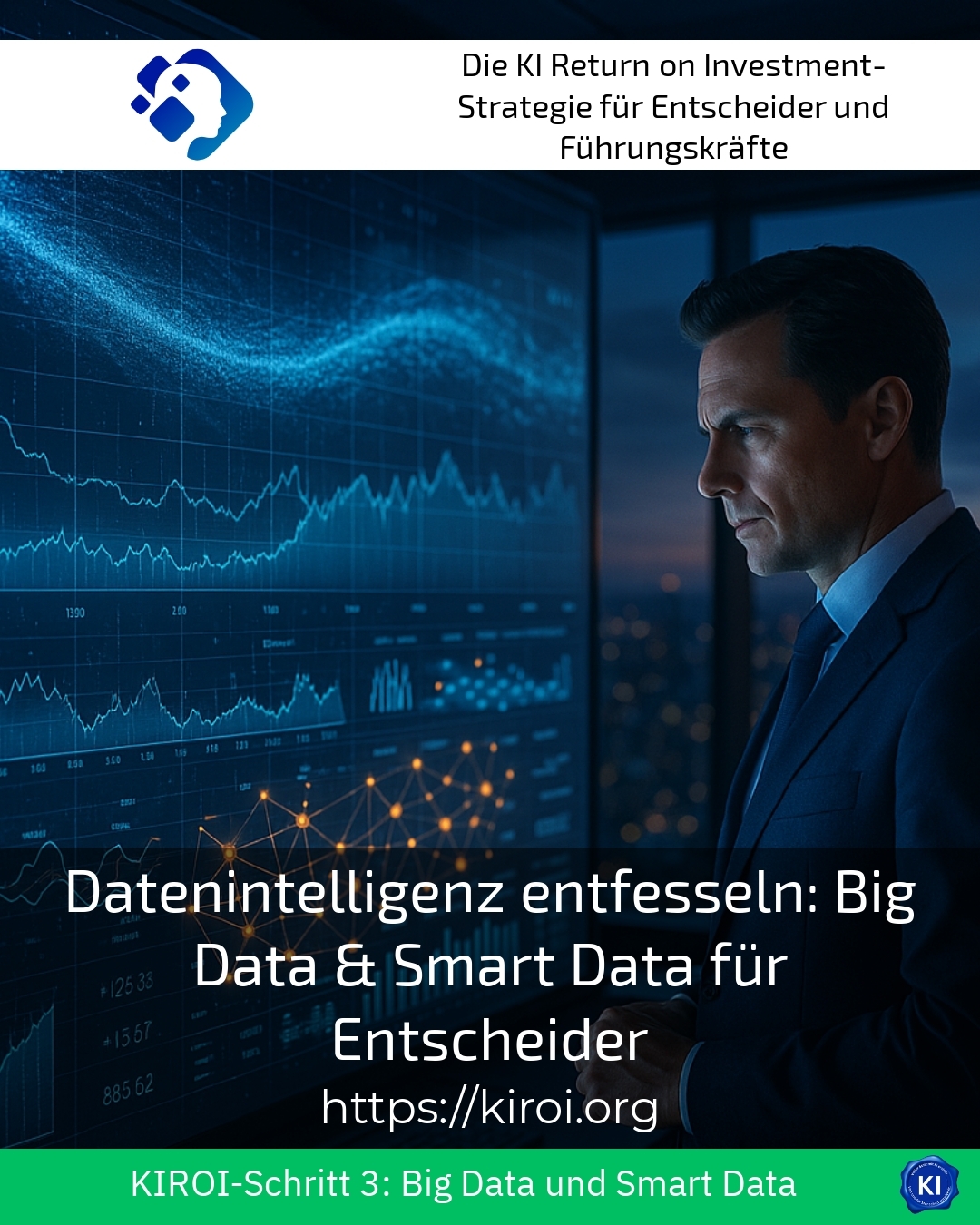Data intelligence is becoming increasingly important in the digital age. Decision-makers are faced with the challenge of extracting real added value from huge amounts of data. Data intelligence describes the ability to generate precise and contextualised smart data from the flood of big data. It is not just about the sheer quantity, but also about the quality and meaningfulness of the information. This intelligently processed data helps companies to make well-founded decisions and develop innovative solutions.
Big data and smart data: the crucial difference
Big data refers to large, heterogeneous and often unstructured volumes of data. This raw information comes from numerous sources such as IoT sensors, transactions or user interactions. Without analysis, however, it offers little direct benefit. Smart data, on the other hand, is high-quality, filtered and contextualised information that is extracted from big data. It is precise, relevant and enables fast and reliable decisions.
An example from the automotive industry: a manufacturer collects data from vehicles and customers. Intelligent analyses create smart data that supports product development and increases customer satisfaction. Another example from the telecommunications industry: a provider analyses usage data in order to optimise networks. The raw data is confusing, but targeted filtering and AI-supported processes create smart data that improves performance.
Smart data is also being used in the healthcare sector to improve patient care. By intelligently analysing patient data, doctors receive relevant information more quickly and can therefore provide more targeted treatment. In retail, smart data helps to better understand customer behaviour and create personalised offers.
Data intelligence: From a mountain of data to valuable knowledge
Data intelligence is the key to creating real added value from big data. It supports decision-makers in acting more efficiently, securely and with foresight. In numerous industries, the targeted use of smart data facilitates strategic decisions and operational processes.
A logistics company uses data intelligence to shorten delivery times and save costs. By analysing traffic data, weather information and order histories, smart data is generated that suggests optimal routes. In the financial sector, intelligent data helps to recognise risks at an early stage and prevent fraud. Smart data is also used in the energy sector to optimise consumption and use resources more efficiently.
Another example from production: a company analyses machine data to predict maintenance requirements and avoid breakdowns. This increases efficiency and reduces production costs. In marketing, smart data helps to plan campaigns in a targeted manner and measure their success.
Practical application of data intelligence
Companies that actively utilise data intelligence often report faster decisions and better results. Analysing customer data enables personalised communication and increases customer satisfaction. The evaluation of production data helps to optimise processes and avoid errors. The intelligent utilisation of market data supports the development of new products and services.
Retailers collect big data about customer movements in their shops. Smart data is created through intelligent analyses, which provide specific recommendations for action, such as which products sell better in which season. In the healthcare sector, smart data is used to improve patient care. By intelligently analysing patient data, doctors receive relevant information more quickly and can therefore provide more targeted treatment.
In the financial sector, intelligent data helps to recognise risks at an early stage and prevent fraud. Smart data is also used in the energy sector to optimise consumption and use resources more efficiently.
My analysis
Data intelligence is a decisive factor for the success of modern companies. It enables valuable insights to be gained from large volumes of data and well-founded decisions to be made. The targeted use of smart data helps decision-makers to act more efficiently, securely and with greater foresight. In numerous industries, the targeted use of smart data facilitates strategic decisions and operational processes. Data intelligence is the key to creating real added value from big data.
Further links from the text above:
Big data vs. smart data: is more always better?
Smart data: definition, application and difference to big data
Big data: the utilisation of large amounts of data
Data intelligence - big data and smart data for decision-makers
Unleashing data intelligence: Big Data & Smart Data for Decision Makers
Unleashing data intelligence: Big Data & Smart Data for Decision Makers
Making decisions with smart data
Big Data & Smart Data specifically for decision-makers
Smart + Big Data | Artificial Intelligence
Data Intelligence Guide: For more transparency and trust
Big and smart data - from statistics to data analysis
Smart data - definition of terms in the AI glossary from clickworker
How to turn big data into smart data
For more information and if you have any questions, please contact Contact us or read more blog posts on the topic Artificial intelligence here.















